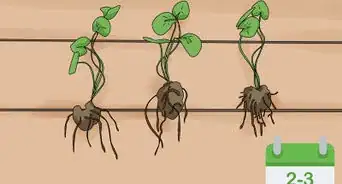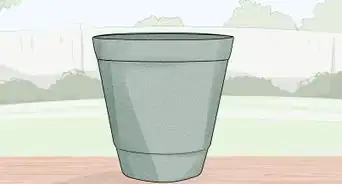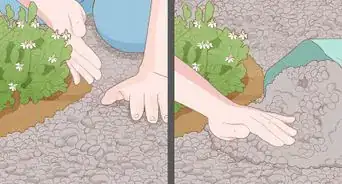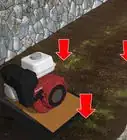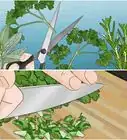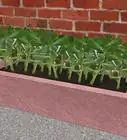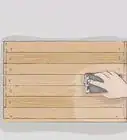This article was co-authored by Ben Barkan. Ben Barkan is a Garden and Landscape Designer and the Owner and Founder of HomeHarvest LLC, an edible landscapes and construction business based in Boston, Massachusetts. Ben has over 12 years of experience working with organic gardening and specializes in designing and building beautiful landscapes with custom construction and creative plant integration. He is a Certified Permaculture Designer, is licensed Construction Supervisor in Massachusetts, and is a Licensed Home Improvement Contractor. He holds an associates degree in Sustainable Agriculture from the University of Massachusetts Amherst.
There are 7 references cited in this article, which can be found at the bottom of the page.
This article has been viewed 136,212 times.
Now that you’ve made a raised garden bed, you might be wondering how best to fill it. Raised garden beds usually need a mixture of soil and compost. You can mix the soil in with the compost thoroughly, or layer them, which is known as lasagna gardening. Either one can be very effective, but lasagna gardening can sometimes be cheaper and easier if you have a tall raised garden.
Steps
Mixing Soil and Compost
-
1Calculate how much soil you will need. Measure the dimensions of your garden bed using a tape measure.[1] You will need the length, width, and depth of the bed. Place those measurements into an online soil volume calculator. Find one of these by searching on the Internet. You can try this one: https://www.gardeners.com/how-to/soil-calculator/7558.html
- Keep in mind that you’ll be mixing the soil with compost. So the number you get from the calculator will be the volume you should have after you’ve combined compost with your soil.
-
2Gather native soil from your yard if possible. The best soil to use is the soil that is native to your area. If you have soil to spare in your yard, simply gather the amount that you need in a bucket or wheelbarrow and move it over to your raised garden bed.Advertisement
-
3Purchase nutrient-rich mixtures if you can’t use native soil. If you don’t have easy access to soil, you can purchase some topsoil or a faux soil mixture from a gardening supply store. If you’re mixing purchased soil with soil from your yard, make sure they both have a similar consistency.
- The most important nutrient your soil needs is nitrogen.
-
4Make your own compost or purchase some. You can make your own compost by decomposing organic material in a compost bin.[2] If you have enough from your personal compost pile, simply use what you have. Or, purchase compost from a gardening store.
- Read the bag or ask the store assistant to find out what materials went into the compost. The best compost will be made primarily from plant matter, food scraps, and manure.[3]
-
5Mix soil and compost using at a 1:1 ratio. Your goal should be to an even mixture of compost and soil. Measure the soil and compost before pouring them into the bed to be precise, or simply gauge the amounts by eye. Don’t worry about being completely exact.[4] Once you’ve poured both soil and compost into the bed, mix them thoroughly using either your hands or a gardening tool, like a till.
- Wear gloves if you’re mixing with your hands.
-
6Remove any rocks from the mixture. Simply pull out rocks whenever you see them and place them somewhere else in your yard. Too many large rocks can make it difficult for plants to grow.
-
7Fill your garden bed to the top or nearly the top. How high you fill the bed depends on personal preference and the plants you’ll be growing. If your plants will grow straight up, like tomatoes, keep the soil mixture flush with the top of the bed. If you’re mainly growing flowers, leave some space between the top of the soil and the top of the bed. This way the bloom of the flower will be more prominently displayed.
Trying Lasagna Gardening
-
1Gather organic compostable materials like grass clippings and leaves. Lasagna gardening uses a bottom layer of compost and a top layer of soil.[5] When making their layer of compost, many gardeners aim to have a mixture that is 2 parts shredded leaves and 1 part grass clippings. If you have a yard, use the leaves from your trees and the grass clippings that you gather from mowing your lawn.
- If you don’t have grass clippings and leaves on hand, ask someone at a local gardening store for alternatives.
-
2Place a layer of cardboard or newspaper down. This will break down slowly, gathering moisture and smothering weeds in the process. You'll need about 4 to 6 overlapping layers regardless of which choice you use. Make sure the layer of cardboard or newspaper spreads all the way to the edges of your raised bed plot.[6] [7]
-
3Lay your compost on top of the newspaper or cardboard. Spread your compostable materials evenly across the cardboard or newspaper layer. Fill the bed up halfway with this material. If you’re using a few different compostable materials, mix them together with your hands.
-
4Find soil to layer on top of your compost. Ideally, use native soil that’s in your yard. If you need an alternative, go to a local gardening store and purchase topsoil or a soil substitute.
-
5Remove any rocks from the soil. Work your hand through the soil and make sure there’s nothing in there that could obstruct the growth of your plants. If you find any rocks, simply move them somewhere else in your yard, or perhaps place them in a park or a beach later.
-
6Fill the raised bed to the top or near the top. Place the soil directly on top of the layer of cardboard or newspaper. If you’re planting something that grows straight, like tomatoes, feel free to make the soil flush with the top of the bed. If you’re planting flowers, leave some space between the top of the soil and the top of the bed.
- This ensures that the bloom of the flower appears more prominent than the stem.
Expert Q&A
Did you know you can get expert answers for this article?
Unlock expert answers by supporting wikiHow
-
QuestionWhat vegetables should be planted together in a raised bed?
 Maggie MoranMaggie Moran is a Professional Gardener in Pennsylvania.
Maggie MoranMaggie Moran is a Professional Gardener in Pennsylvania.
Home & Garden Specialist
-
QuestionHow deep should a raised bed garden be?
 Maggie MoranMaggie Moran is a Professional Gardener in Pennsylvania.
Maggie MoranMaggie Moran is a Professional Gardener in Pennsylvania.
Home & Garden Specialist
-
QuestionWhat soil do you use for raised beds?
 Maggie MoranMaggie Moran is a Professional Gardener in Pennsylvania.
Maggie MoranMaggie Moran is a Professional Gardener in Pennsylvania.
Home & Garden Specialist
Warnings
- Avoid using only soil or only compost, as this usually causes problems for a garden.⧼thumbs_response⧽
References
- ↑ https://www.gardengatemagazine.com/articles/flowers-plants/plant-guide/calculate-the-size-of-your-garden-bed/
- ↑ https://www.bhg.com/gardening/yard/compost/how-to-compost/
- ↑ https://www.smilinggardener.com/organic-soil-management/where-to-buy-compost/
- ↑ https://www.pca.state.mn.us/sites/default/files/h-hhw1-36.pdf
- ↑ https://learningandyearning.com/lasagna-gardening
- ↑ https://www.bbg.org/gardening/article/make_a_lasagna_garden_in_a_raised_bed
- ↑ https://extension.oregonstate.edu/gardening/techniques/sheet-mulching-aka-lasagna-composting-builds-soil-saves-time
About This Article
To fill a raised garden bed, you'll need enough soil to fill the bed and some organic compost. You should use native soil from your yard if possible, since this will be best for your plants. If you can’t use native soil, purchase a nutrient-rich mixture from your local gardening store. When you fill the bed, add both soil and compost at a ratio of 1 to 1. Fill the bed to the top or nearly to the top. Once you’ve poured the soil and compost into the bed, mix them either with your hands or with a gardening tool like a till. Just make sure to remove any rocks you find so they don’t interfere with the growth of your plants. To learn how to try lasagna gardening, read on!
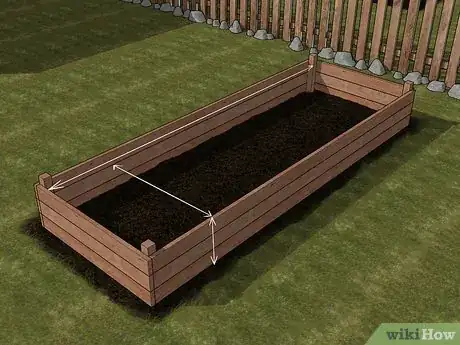
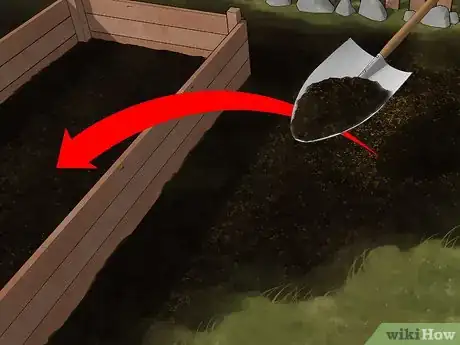
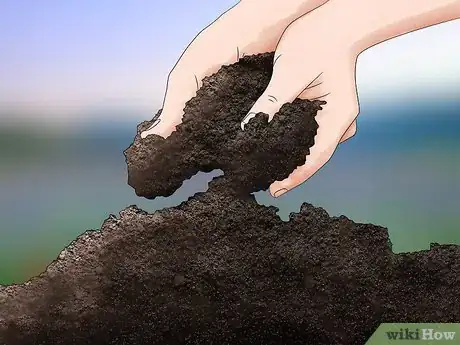

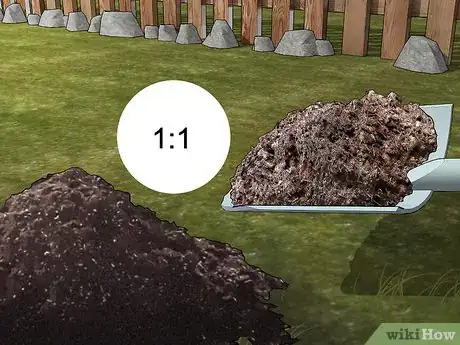
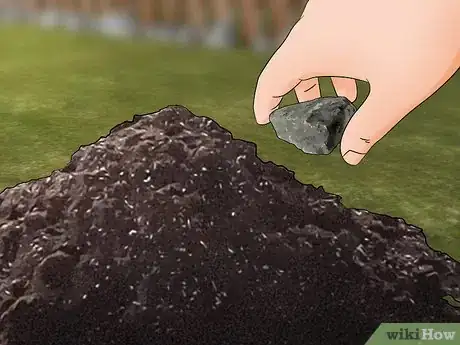
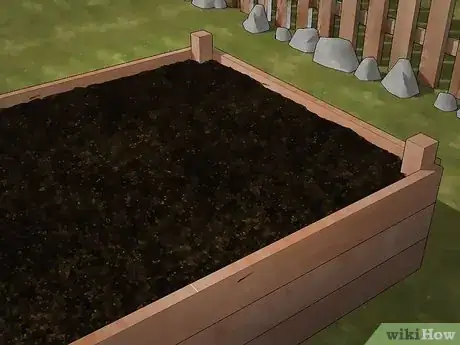
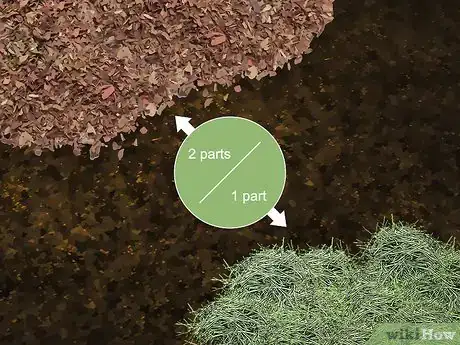
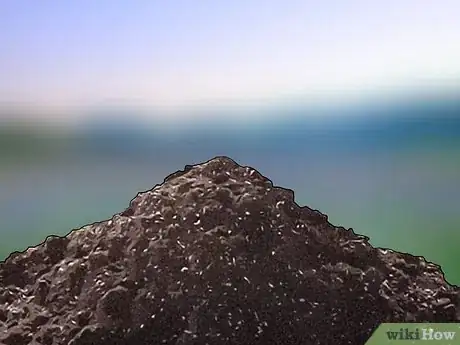

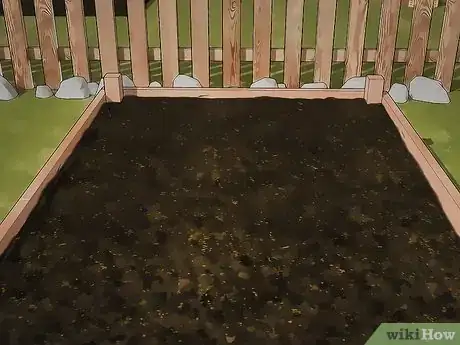
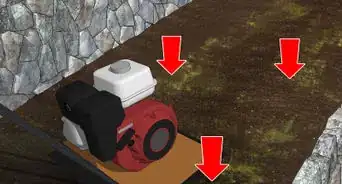
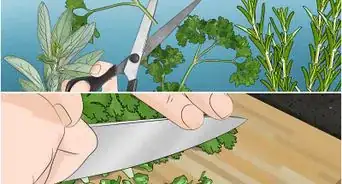
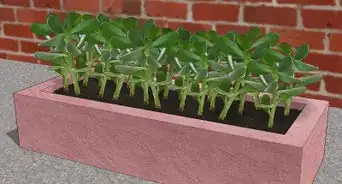
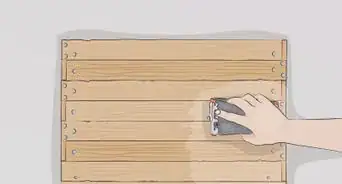
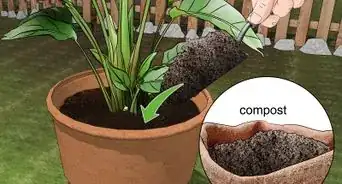
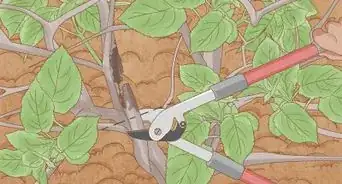
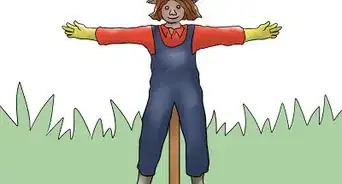
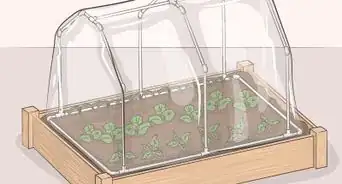
-Oven-Step-15.webp)

